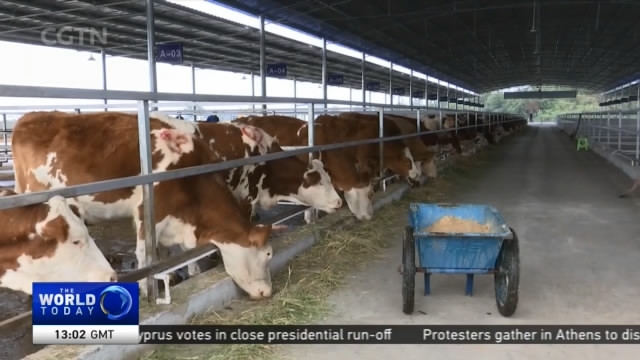
22:08, 04-Feb-2018
Chinese Agriculture: No. 1 Central Document focuses on rural vitalization

China has released a package of policies as "No. 1 central document", charting the roadmap for rural vitalization. This year's is the 15th consecutive year that the "No. 1 central document" has been devoted to agriculture, farmers and rural areas. Zheng Yibing reports.
Chinese strategy of rural vitalization will be fully deployed, and implemented.
This is seen in this year's Chinese "No. 1 central document", as an indicator of policy priorities of central government.
The document calls for greater-than-ever attention to agriculture, which was put forward by the 19th National Congress of Communist Party of China last October.
Its timetable decided by the CPC Central Committee at a rural conference in December remains unchanged. But the objectives for different stages have become more specific.
Important progress will be seen as of 2020, when the institutional framework and policy system generally take shape. Decisive progress will be achieved as of 2035, when modernization of agriculture and rural areas fundamentally become a reality. In 2050, the all-around vitalization will feature strong agriculture, a beautiful countryside and well-off farmers.
The document put a lot of emphasis on the need for proper planning. Local governments have been required to specify their plans according to the local reality, especially for the period from 2018 to 2022, and to coordinate policy-making in relevant spheres.
The document specifies that the strategy aims to build China's rural areas with "thriving businesses, pleasant living environments, social etiquette and civility, effective governance and prosperity".
ZHENG YIBING BEIJING "Today is Lichun, and according to the Chinese Lunar calendar, it's the beginning of the spring season. It's also a time when many of the country's farmers, are hoping for a good harvest in the coming year. The release of China's No.1 Central Document is expected to further promote agricultural development, and to benefit those farmers, who make up over 40 percent of China's population. ZHENG YIBING, CGTN, BEIJING."

SITEMAP
Copyright © 2018 CGTN. Beijing ICP prepared NO.16065310-3
Copyright © 2018 CGTN. Beijing ICP prepared NO.16065310-3